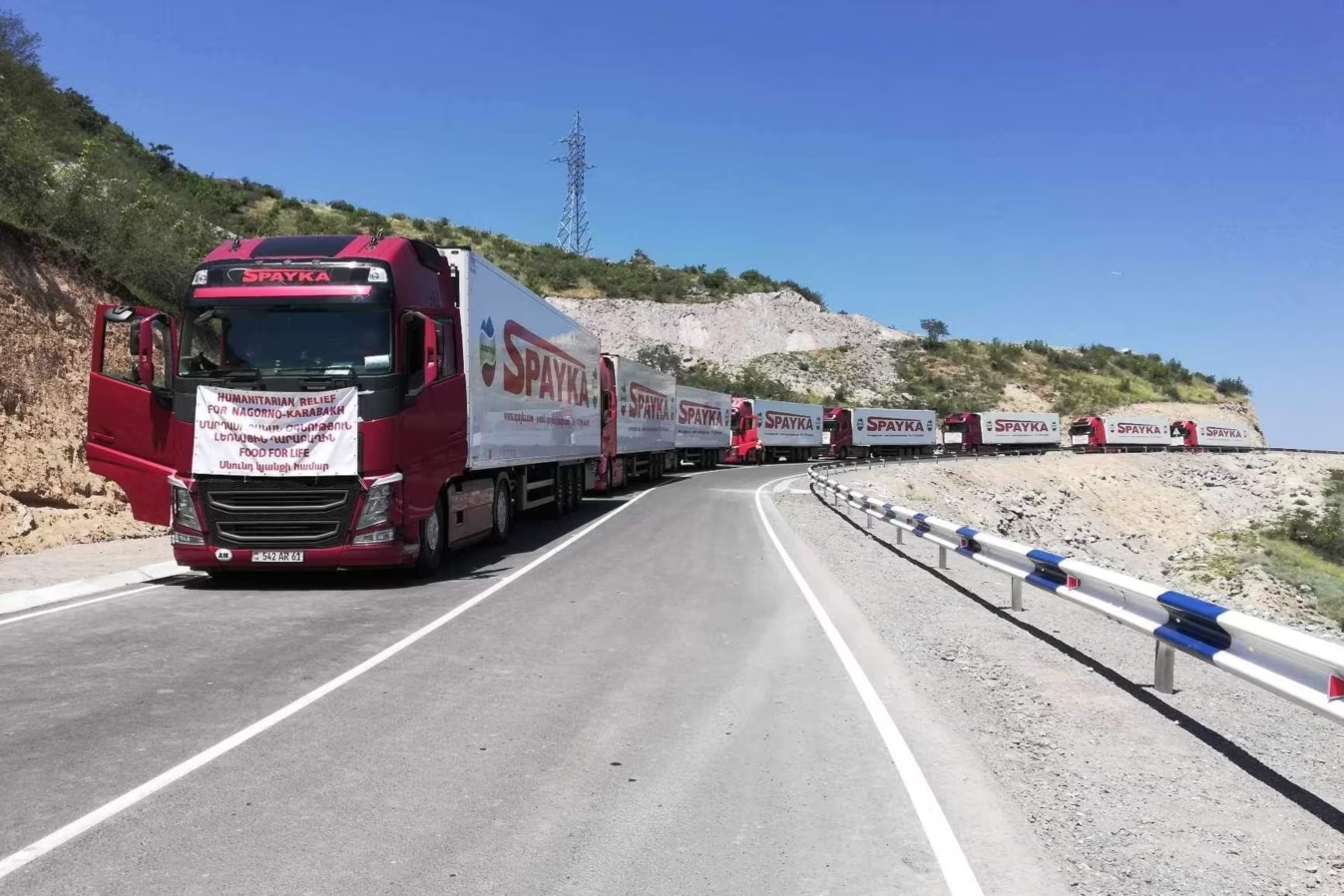
The former chief Prosecutor of the International Criminal Court (ICC), Luis Moreno Ocampo, has accused the Azerbaijani government of genocide in Nagorno-Karabakh, as the humanitarian situation in the region continues to worsen.
‘Starvation is the invisible Genocide weapon. Without immediate dramatic change, this group of Armenians will be destroyed in a few weeks’, Ocampo wrote in a 28-page report on the Lachin corridor blockade published on 7 August.
‘Starvation as a method to destroy people was neglected by the entire international community when it was used against Armenians in 1915, Jews and Poles in 1939, Russians in Leningrad (now Saint Petersburg) in 1941, and Cambodians in 1975/1976’, wrote Ocampo. ‘Starvation was also neglected when used in Srebrenica in the winter of 1993/1994’.
Ocampo suggested that Ilham Aliyev, the President of Azerbaijan, should be investigated by the ICC, explaining that that could only take place were the UN Security Council to adopt a resolution regarding the blockade of the Lachin corridor and refer it to the court.
In the report, he stated that there was ‘reasonable basis’ to believe that President Aliyev had genocidal intentions, having blocked the delivery of essential goods to Nagorno-Karabakh, disobeyed the orders of the International Court of Justice to ensure unimpeded movement of persons, vehicles, and cargo along the Lachin Corridor, and having ignored calls regarding the ‘real and imminent risk’ to the region’s Armenian population created by the blockade.
‘President Aliyev’s public statements affirming that the blockade was the consequence of people smuggling minerals and iPhones through the Lachin Corridor is a diversion. Smuggling activities should be properly investigated but they are not an excuse to disobey a binding order of the International Court of Justice or a justification to commit a Genocide’, wrote Ocampo.
He added that obtaining a UN Security Council resolution to provide ICC jurisdiction was ‘feasible’.
‘Under the Genocide Convention, state parties have an obligation to prevent and punish Genocide, and 14 of the current 15 members of the UN Security Council are also parties of that Convention, providing an overwhelming majority’, he added.
The statement also calls for cooperation between Russia, which oversees peacekeeping in Nagorno-Karabakh, and the United States and EU Member States. All are parties to the Genocide Convention, with Ocampo stating that they are in the ‘privileged position’ to prevent the genocide.
‘Their intense confrontation due to the Ukrainian conflict should not transform the Armenians into collateral victims’, wrote Ocampo.
Hikmet Hajiyev, assistant to Azerbaijan’s President Aliyev, called the report ‘biased’ and ‘anti-Azerbaijani’.
Azerbaijan denies blockade
Despite the humanitarian crisis in Nagorno-Karabakh continuing to deepen, with neither peacekeepers nor Red Cross able to transport basic goods and humanitarian aid into the region, Azerbaijan’s government in Baku has maintained its denial that any blockade is taking place.
In response to a call on Monday by UN Human Rights Experts to lift the blockade and open the Lachin corridor, Azerbaijan’s Foreign Ministry dismissed the accusations that it had blockaded the corridor, accusing the UN experts of ‘political manipulations’.
The statement added that ‘the usage […] of expressions such as ‘Nagorno-Karabakh’ in clear disrespect of the territorial integrity and sovereignty of Azerbaijan, the interference in the internal affairs of Azerbaijan, as well as the double standards against it […] are unacceptable’.
In recent days, authorities in Nagorno-Karabakh have released reports describing the worsening humanitarian situation in the region, noting that mortality rates were significantly higher than average.
The region’s Ministry of Health reported on Tuesday that mortality due to cardiovascular disease had more than doubled, with rates in July 2.6 times higher than the same month of the previous year.
‘This includes a 66% increase in mortality from acute and chronic heart failure, a 20.8% increase in mortality from acute myocardial infarction, and an 8.8% increase in mortality from brain paralysis’, it wrote.
Provision of medical supplies to the region has been suspended since mid-June, when Azerbaijan blocked the transport of humanitarian aid into the region. Transport of patients to Armenian hospitals is also taking place at minimal rates, with Red Cross transport of severely ill patients resuming after Azerbaijan blocked the organisation’s access to the region.
On 29 July, Azerbaijani border guards arrested a 68-year-old resident of the region as he was being evacuated to Armenia by the Red Cross for heart surgery, accusing him of genocide.
[Read more: Azerbaijan arrests Nagorno-Karabakh resident for ‘war crimes’]
Shortages of food and other essential supplies have worsened in the months since the Azerbaijan blocked deliveries of humanitarian aid.

An Armenian government shipment of aid to the region has remained at the entrance of the Lachin corridor, having not been permitted to enter on 26 July.
[Read more: Nagorno-Karabakh aid convoy held at Lachin Corridor]
On Tuesday, the President of Nagorno-Karabakh, Arayik Harutyunyan, called on the UN Security Council to invite an urgent session to discuss the situation in Nagorno-Karabakh and adopt a resolution obliging Azerbaijan to open the corridor, which has been closed since last December.
For ease of reading, we choose not to use qualifiers such as ‘de facto’, ‘unrecognised’, or ‘partially recognised’ when discussing institutions or political positions within Abkhazia, Nagorno-Karabakh, and South Ossetia. This does not imply a position on their status.








